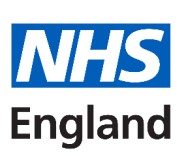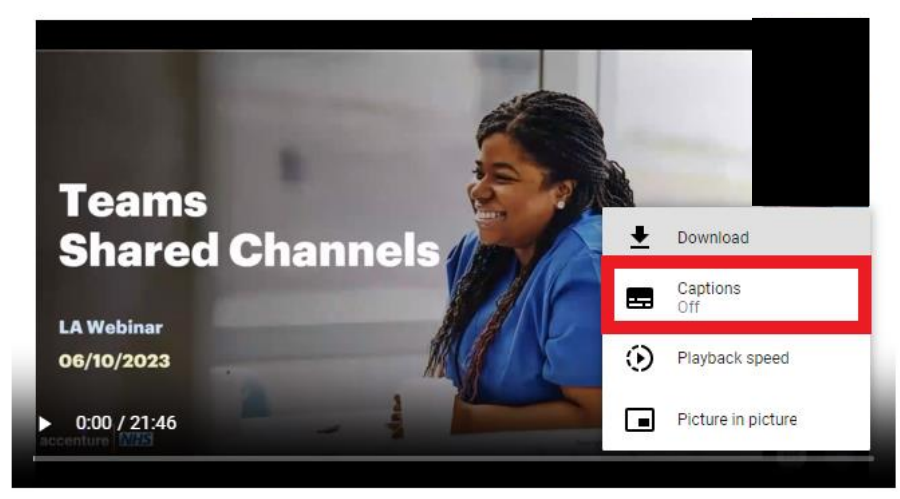Please note this information is correct at the time of publishing.
Local Administrator (LA) bulletin – 15 December 2023
Dear Primary / Local Administrator,
As another busy year draws to a close, I want to take a moment to extend my heartfelt gratitude to each one of you for your unwavering dedication and exceptional work in supporting NHSmail.
Your commitment and hard work have been the backbone of seamless NHSmail support and collaboration throughout the NHS, ensuring that our healthcare platform runs efficiently and effectively.
This year has been filled with challenges and triumphs, and through it all, your resilience and professionalism have stood out. The role you play is vital, often going unnoticed, but it is the successful foundation upon which your organisations use of NHSmail relies on and our platform delivery teams fall back on as part of our innovation plans.
As we look forward to the holiday season, I want to wish you all a very happy and restful break. You have all earned a much-deserved time of relaxation and rejuvenation. Thank you once again for your incredible support and dedication throughout this year.
Here’s to a bright and prosperous New Year!
John McGhie, Head of Collaboration Services
To be actioned:
Multi-Factor Authentication (MFA) update and deadline
NHSmail has been working with organisations to roll out Multi-Factor Authentication (MFA) across all NHSmail users and we are grateful for all the hard work organisationshave put in to increase the uptake of MFA so far.
As we get closer to the March 2024 deadline, when all users should have MFA applied to their accounts, we are increasing our tracking and communications to further drive the uptake of MFA. From 22 March 2024, we intend to roll out MFA centrally and more information on the central MFA roll out will be circulated shortly to LAs.
We encourage you to carry on with rolling out MFA as increasing MFA uptake before the deadline will not only improve security across the platform but will also mean it will be easier for your organisation, IT helpdesk and users when MFA is switched on for all.
Actions requested:
1. Ensure your organisation has plans in place to continue the local roll out of MFA prior to 22 March 2024
2. Ensure you are familiar with the NHSmail MFA Policy and have read the guidance on the support site.
3. Be aware that we’ll be starting to communicate directly with users via email to make them aware of MFA and the benefits to them and your organisation.
Additional information:
The NHSmail team have produced guides and an MFA toolkit on the NHSmail support site to assist your organisation with the roll out of MFA.
Move to Authenticator Application postponed to new year
Unfortunately, we have had to postpone the work to withdraw insecure authentication methods on privileged accounts.
We have not seen the number of administrators expected, migrating to either the authentication app or ensuring it is the default option.
Because we do not want to impact the important work you do on behalf of your organisation in managing your users, we have delayed the removal until after the new year.
This is very disappointing because security and especially that of the NHS and the data you are custodians of, should be protected.
You can still upgrade your authentication method to use the authenticator app or ensure it is the default option. How to change that method is available on the NHSmail support site section 1.6.
Primary Care Network (PCN) update
Primary Care Networks (PCNs) in England are now eligible to apply for NHSmail. Further guidance can be found on the NHSmail support site: Registering a Primary Care Network (PCN) – NHSmail Support
Power Apps – Users need to be a member of a group to run Power Apps
Users must be a member of a security group to run Power Apps.
Users who have had a Power App shared with them, will lose access to run the Power App unless they are added to the security/M365 group that is associated with the environment where the Power App is hosted.
Microsoft are driving this change and we have arranged an extension to the timeline for this change until the end of January 2024.
For further information please visit our NHSmail support pages for Control and Management – NHSmail Support.
NHSmail Intune update
The NHSmail Intune Team are delighted to share that we have recently surpassed 50,000 devices on the Intune platform, which is a fantastic milestone to hit! We have over 160 organisations successfully managing their devices via Intune.
We have also recently introduced macOS device deployments to the NHSmail Intune capabilities. This solution provides automated enrolment of macOS devices into Intune via Apple Automated Device enrolment for devices registered in Apple Business Manager (ABM).
Now is a great time for NHS organisation to consider the Intune offering following the new NHS Collaboration licensing agreement. Under the new agreement, EMS E3 and AADP2 licenses are available free of charge to NHS organisations without the need to purchase additional licences.
To register your interest and discuss Intune, please visit the NHSmail Intune service overview page to complete the form, and a member of the NHSmail team will be in touch to arrange an introductory call.
For further information please see the Intune section on the support site where you can find out more about new features and capabilities of NHSmail Intune. you can find out more about new features and capabilities of NHSmail Intune.
Auto Expanding Archive
The Auto Expanding Archive function which allows additional quota to be added to a user’s archive mailbox will be deprecated shortly.
NHSmail users should make use of the online archive available, which allows you to store and manage older or legacy emails outside of your primary mailbox. NHSmail offers 100GB of online storage, alongside your standard (4GB) or enhanced (50GB) mailbox. For further information on Online archiving visit the NHSmail support pages.
NHSmail email offering is designed for the exchange of information and is not a storage solution. Archiving should be carried out in line with your local policy and process as outlined in the NHSmail Acceptable Use Policy.
Junk email
Are you and your organisation missing key information from legitimate emails going into your junk email folder?
It is good practice for NHSmail users to check their Junk folder on a regular basis, toensure that any emails identified as spam which are legitimate can be dealt with, marked as “not spam” and are not missed.
We would strongly recommend that you contact your userbase and provide guidance to ensure they undertake this activity regularly.
This could include advising users to move the Junk Email folder to their “Favourites”.This will not only reduce the likelihood of clinical incidents but will also ensure continued operational stability for your organisation and avoid important information from being delayed or missed.
If you would like to find out more, please visit our NHSmail support pages about Junk Email.
Primary and Local Administrators (PLA/LA) Webinar dates
As the holiday season is upon us, the final PLA/LA webinar for this year will take place today 15 December 2023.
The last scheduled MFA webinar took place on 8 December 2023
They are scheduled to begin again on 5 January 2024.
Feel free to check our LA webinars webpage and MFA webinar support site for more information regarding webinars.
Classic Teams users to be updated to new Teams after 31 March 2024
From 31 March 2024, Microsoft will be deprecating classic Teams and users will be moved to the new version of Teams.
New Teams for Windows and Mac users is now generally available for those userswho wish to start using the new version prior to the switchover. Further information is available following a recent announcement by Microsoft.
Live Captions on NHSmail Support Site
A Live captions enhancement has been enabled for recordings published to theNHSmail support site. Live captions provide users with the option to have automatic transcription added to videos. To turn on captions, click additional choices in right down corner of the video (three dots) and then choose Captions and turn them on.
 Staying cyber safe over the festive season
Staying cyber safe over the festive season
Amid all the festive opportunities to bag bargains and relax into spending extended time with friends and family, cyber criminals are lurking – hoping to catch you off guard, please ensure you keep your organisation safe and share the importance of cyber security with your users.
Here are 4 simple ways you can boost your cyber safety while enjoying the festive
season…
1. Look out for fraudulent messages
Think twice before interacting with an ‘urgent’ message claiming to be about a parcel delivery – this is often a scam. If you’re unsure, contact the company you’ve ordered from directly.
2. Set up Multi-Factor Authentication (MFA)
Adding MFA to your accounts is one of the best ways to stay cyber safe. It acts as an added layer of security to keep fraudsters out.
3. Use strong passwords
The longer and more complex your password, the more difficult it is to crack – the National Cyber Security Centre recommends using 3 random words.
4. Recharge your cyber security knowledge with our festive learning
Centrally funded licenses are available for Immersive Labs, a premium training platform that offers interactive challenges to help you improve your cyber security skills, judgement, and knowledge.
Register for a free licence, and when you’re set up you’ll see the ‘Cyber safety over the holiday season’ collection on the Immersive Labs launchpad: http://www.digital.nhs.uk/immersive-labs
Best wishes,
The NHSmail team



